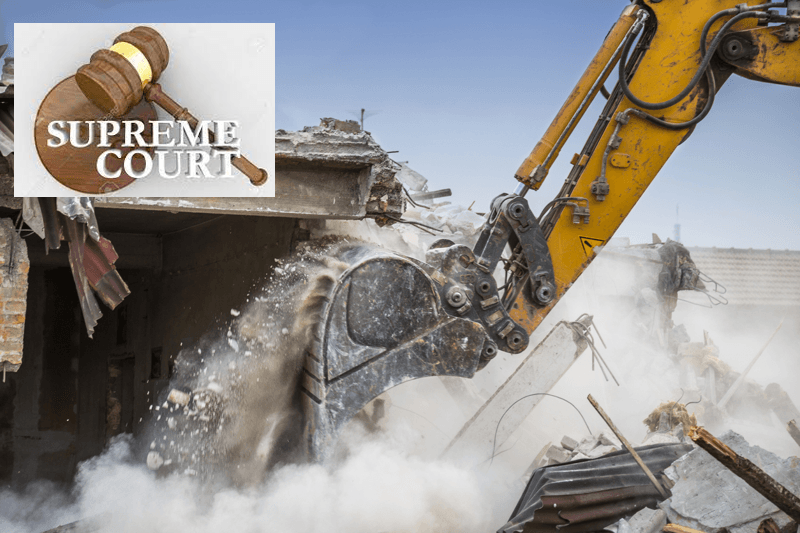The Patron in chief of Association of Builders and Developers (ABAD) Mohsin Sheikhani says in a press conference “I haven’t seen so much illegal construction in Karachi in recent times, however no court order has been passed for these illegal activities.” He was speaking along with the residents of Nesla Tower, of which demolition has been ordered by the Supreme Court of Pakistan. The ABAD is of the opinion that there is a difference between regularized and illegal construction, and both shouldn’t be treated in same manner.
The demolition exercise of illegal structures in Karachi reflects not only the fragile civic infrastructure but also the dubious practices of authorities at the helm of affairs during the past three decades. And, the end result of it is now the people of this city are paying the price of these authorities’ corruption, malpractices and mismanagement.
Housings as Encroachments
Dozens of protests and clashes with anti encroachment authorities and law enforcement agencies are now the routine in the megacity these days. The Supreme Court has passed the order of demolition of houses alongside Gujar Nallah, Orangi Nallah, Manzoor Colony Nallah and the structure of Nesla Tower. There is no denying these housings alongside storm water drains are questionable, but majority of these houses have been awarded lease and thousands of families are living in these home since decades. The same is the case with Nesla Tower’ homebuyers, who are residing in these apartments with valid lease documents.
Renowned Urban Planner Arif Hasan, therefore, writes in his recent column “The Supreme Court has also ordered the demolition of leased houses along the nullahs because it thinks that these leases are fake. One is at pains to understand how it knows this without an investigation. It is also pertinent to ask here if it would also order the demolition of leased houses in middle-income or elite settlements without investigating their leased status”.
However, it is a fact that encroachments had been raised on footpaths, nullahs and amenity plots for decades but various governments, both local and provincial, beside relevant civic agencies were ignoring all such illegal practices which ultimately encouraging the people behind this exercise.
Sparing Corrupt Officials
The MQM Pakistan in a press conference, condemns the Government of Sindh and questions why not any official responsible for issuing land documents to innocent people hasn’t been punished for his crimes. The demands that action should have first been taken against those officials who granted permissions to these encroachments.
The convener of the MQM also demands that a commission be set up to take action against all encroachments made in the past 40 years and against those officials who had facilitated them. He also asks as why residences of innocent people in Karachi were not being regularised after imposing certain fines on the same pattern of Banigala residence of Prime Minister Imran Khan, which has been regularized.
Arif Hasan also shares the same views “There are also different criteria for judgements related to the poor and those related to the rich. For example, Bahria Town was fined Rs. 460 billion, and the land that it illegally occupied was regularised at a fraction of its market value. Prime Minister Imran Khan’s Bani Gala residence was regularized at Rs. 6.66 per square yard and so were the Hyatt Regency violations of the Islamabad Master Plan.”
Moreover, it is a great irony with all the residents that no demolition drive was ever taken place in Karachi in the past, or even officially identified, of illegal construction by elite and government encroachments on and alongside the natural drainage system of the city. Where major offices and institutions are located like Sindh Secretariat, Sindh Ombudsman, Federal Board of Revenue, Sindh Museum and even the building of Supreme Court in Karachi, besides many other high rise structures and media houses.
By
Editorial, Infocus


